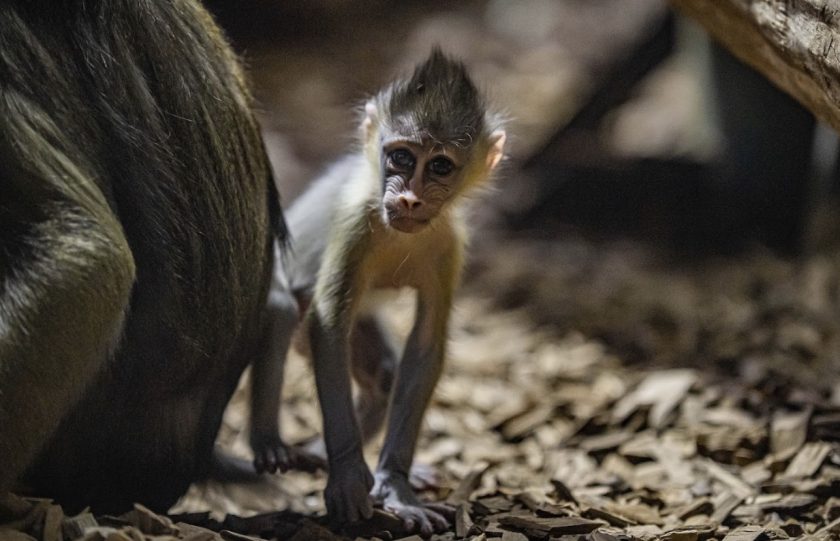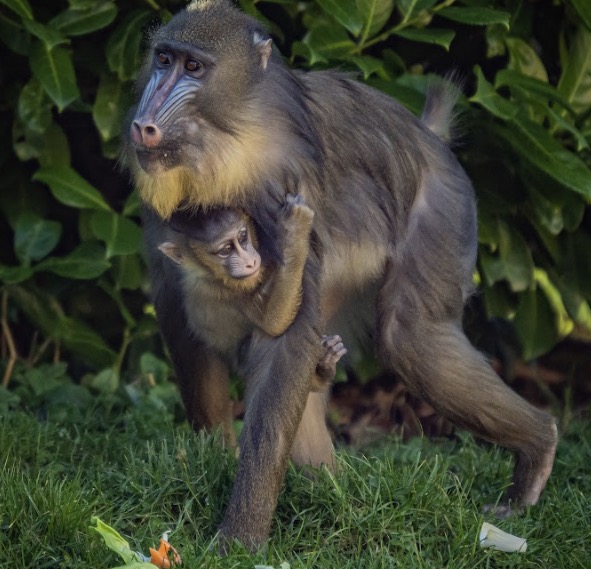Adorable baby mandrills born at Chester Zoo after ten year wait

Chester Zoo is celebrating the birth of not one but two baby mandrills.
The precious primates entered the world just five weeks apart and are the first of their kind to be born at the zoo in more than a decade.
The first to arrive was born to 10-year-old mum Brio, providing her with her first taste of parenthood, with the second infant arriving to more experienced mum, Obi (17). The new babies are half siblings and share the same dad, Kamau (11).
Mandrills are listed as vulnerable on the International Union for the Conservation of Nature’s (IUCN) Red List of threatened species, with numbers in the wild having declined significantly in recent years.
Primate experts say the biggest threat the species faces is habitat loss, as the forests they live in continue to be aggressively cut down for timber and agricultural use. Mandrills are also hunted for the bushmeat trade.

Zookeepers are yet to determine the sexes of the new arrivals, as when mandrills are born they cling tightly to their mums for the first few months of life.
Siobhan Ward, Primate Keeper at the zoo, said:
“You know what they say about buses! To have two baby mandrills, born within weeks of each other, after more than 10 years, is just incredible. The two new arrivals will only spend a few months at their mums’ sides before gaining enough confidence to explore on their own with the rest of the group.
“Mum Brio was actually the last baby to be born at the zoo more than a decade ago and, as a first-time mum, she’s doing a wonderful job and has adapted to parenthood brilliantly. ”

“The two youngsters he has sired will now join a co-ordinated breeding programme with other leading conservation zoos and add to the important insurance population for this charismatic species.”
Mandrills are the world’s largest monkey species and are native to a region of Western Africa.
They are born with grey faces, but will soon start to develop their iconic red muzzle, with blue ridges on both side of their faces, as they mature and reach adulthood.
This spring, conservation education specialists at Chester Zoo are hoping their new campaign, Discover Something New, will throw an important spotlight on unusual and lesser known species, like mandrills. For more, visit: https://www.chesterzoo.org/discover-something-new/
Spotted something? Got a story? Send a Facebook Message | A direct message on Twitter | Email: News@Deeside.comLatest News









